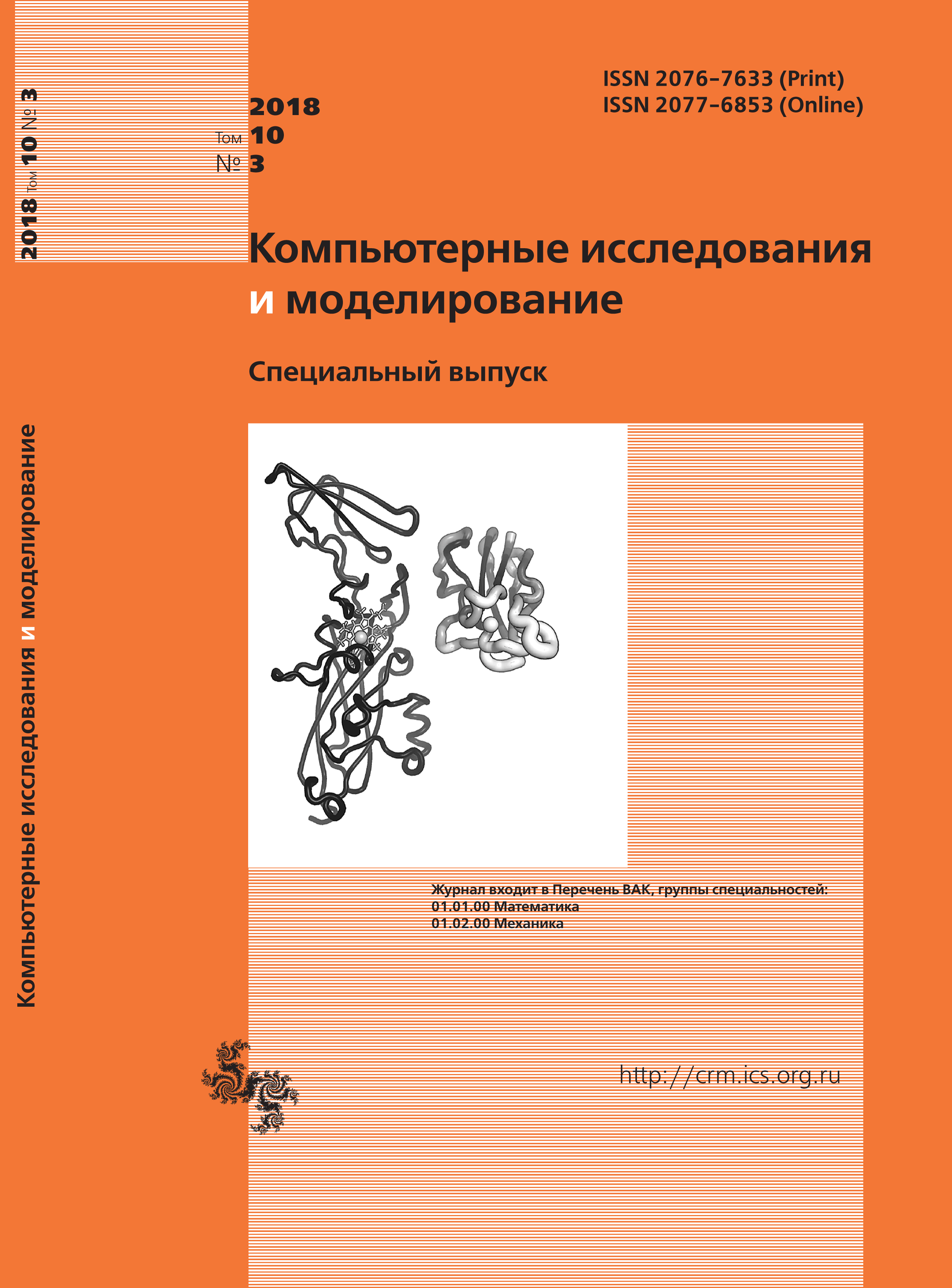All issues
- 2025 Vol. 17
- 2024 Vol. 16
- 2023 Vol. 15
- 2022 Vol. 14
- 2021 Vol. 13
- 2020 Vol. 12
- 2019 Vol. 11
- 2018 Vol. 10
- 2017 Vol. 9
- 2016 Vol. 8
- 2015 Vol. 7
- 2014 Vol. 6
- 2013 Vol. 5
- 2012 Vol. 4
- 2011 Vol. 3
- 2010 Vol. 2
- 2009 Vol. 1
Searching stochastic equilibria in transport networks by universal primal-dual gradient method
We consider one of the problems of transport modelling — searching the equilibrium distribution of traffic flows in the network. We use the classic Beckman’s model to describe time costs and flow distribution in the network represented by directed graph. Meanwhile agents’ behavior is not completely rational, what is described by the introduction of Markov logit dynamics: any driver selects a route randomly according to the Gibbs’ distribution taking into account current time costs on the edges of the graph. Thus, the problem is reduced to searching of the stationary distribution for this dynamics which is a stochastic Nash – Wardrope equilibrium in the corresponding population congestion game in the transport network. Since the game is potential, this problem is equivalent to the problem of minimization of some functional over flows distribution. The stochasticity is reflected in the appearance of the entropy regularization, in contrast to non-stochastic case. The dual problem is constructed to obtain a solution of the optimization problem. The universal primal-dual gradient method is applied. A major specificity of this method lies in an adaptive adjustment to the local smoothness of the problem, what is most important in case of the complex structure of the objective function and an inability to obtain a prior smoothness bound with acceptable accuracy. Such a situation occurs in the considered problem since the properties of the function strongly depend on the transport graph, on which we do not impose strong restrictions. The article describes the algorithm including the numerical differentiation for calculation of the objective function value and gradient. In addition, the paper represents a theoretical estimate of time complexity of the algorithm and the results of numerical experiments conducted on a small American town.
Copyright © 2018 Gasnikov A.V., Kubentayeva M.B.
Views (last year): 28.Indexed in Scopus
Full-text version of the journal is also available on the web site of the scientific electronic library eLIBRARY.RU
The journal is included in the Russian Science Citation Index
The journal is included in the RSCI
International Interdisciplinary Conference "Mathematics. Computing. Education"







